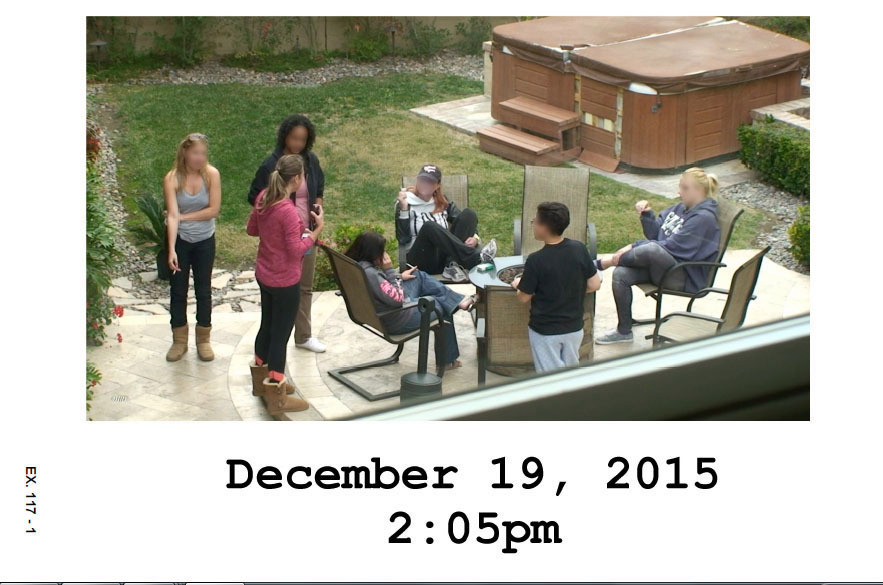The city of Encinitas watched, and waited, for five years as the city of Costa Mesa waged a fierce and costly legal battle to regulate sober living homes.
Then, last year, when Costa Mesa clocked victories in state and federal courts, Encinitas sprang to action, adopting sober living rules that were remarkably similar to Costa Mesa’s. The goal: To gain a measure of control over the vast world of often-rowdy “recovery residences” that neighbors said turned their backyards into noisy smoking lounges — or worse.
Anaheim, Huntington Beach and other cities followed Costa Mesa’s lead as well. The $7 million-plus Costa Mesa spent defending its rules seemed to clear the path for all of them.

Enter, now, the big gorilla — the California Department of Housing and Community Development — and a possible reversal of those rules.
In March, the state sent Encinitas a vaguely threatening 10-page “Notice of Violation,” saying its new ordinance discriminates against the disabled — a group that, in its reading of the law, includes recovering drug users and alcoholics.
The state demanded that Encinitas take immediate steps to repeal its sober living law or face the loss of millions in housing funds and perhaps a legal battle with the Attorney General. That might mean an expensive lawsuit on top of a budget smackdown.
Encinitas sprang to action again, and in April suspended enforcement of its sober living ordinance and promised to repeal it within six months.
“This is a deathblow to these discriminatory housing practices,” said Pete Nielsen, president and CEO of the California Consortium of Addiction Programs and Professionals, in a prepared statement.
Anaheim, with a similar ordinance adopted at a similar time, received a similar missive from the state earlier this month.
Anaheim, however, is not racing to repeal.
Thanks for your thoughts
The “Letter of Technical Assistance” sent to Anaheim by the Department of Housing and Community Development is apparently the warning before a formal notice of violation is lodged.
Dated May 3, it says the the city’s sober living rules “potentially conflict with statutory prohibitions on discrimination in land use by imposing separate, more onerous requirements on housing for a protected class, limiting the use and enjoyment of their homes, and jeopardizing the financial feasibility of group homes.”
Anaheim’s response, so far, is “Thanks!”
“We welcome the input and share a goal of providing for community care facilities in Anaheim,” city spokesman Mike Lyster said. “The city’s rules and regulations are a framework for group homes to not only operate but succeed with good neighbor policies and other best practices. We look forward to working through any concerns there may be at the state level.”
Strangely, perhaps, other cities and counties with sober living ordinances — including Newport Beach, Huntington Beach, Costa Mesa, Laguna Niguel, Yucaipa and Fresno, as well as the counties of Orange, Los Angeles, San Bernardino, Kern and Sacramento — have not yet received similar letters from the Department of Housing and Community Development. Many expect they will.

“This is a pretty strong response from the state, and it doesn’t appear to leave cities much choice,” said Sherry Daley, a vice president for the California Consortium of Addiction Programs and Professionals, which for years has been leading the charge against these ordinances.
What the rules do
The sober living laws differ a bit from city to city, but they share the same essential ingredients.
In Costa Mesa, people who’ve been convicted as sex offenders, violent felons and drug dealers are prohibited from operating sober homes. The homes must provide 24/7 supervision of clients, be separated from other recovery facilities by at least 650 feet, and get a special permit in certain circumstances. City rules also say that residents in such homes must be actively participating in “legitimate” recovery programs. And when people leave these homes, operators in Costa Mesa must provide transportation so their former customers don’t wind up on the street.
In Anaheim, sober homes must get a permit and adopt a “good neighbor policy, which, at minimum, requires residents to be considerate of neighbors, including refraining from … excessively loud, profane, or obnoxious behavior that would unduly interfere with a neighbor’s use and enjoyment of their dwelling unit.” There also must be a written protocol for what do to when a complaint is received.
In Huntington Beach, the city will deny permits to sober home operators who themselves have been sober less than a year.

Why do cities believe such rules are needed?
“The city of Huntington Beach has seen a sharp increase in the number of Sober Living Homes, which has generated secondary impacts including, but not limited to, neighborhood parking shortfalls, overcrowding, inordinate amounts of second-hand smoke, and noise; and the clustering of Sober Living Homes in close proximity to each other,” the city’s ordinance says, summing up the complaints of many.
That, in turn, has lead to concentrations of homes packed with “extremely transient” populations, turning city blocks into “recovery campuses” that look more like institutions than regular neighborhoods, critics have said. Grieving parents have also mourned the deaths of their children from drug overdoses in sober homes.
“At least some operators of sober living homes and group homes are driven more by profit rather than intent to provide recovering addicts a realistic potential of sobriety,” Huntington Beach’s ordinance continues. Without regulation, there’s no way to ensure that the people in the homes are truly disabled or that the homes are professionally operated, it says.
“In its actions, the City Council intends to strike an appropriate balance between the interests of the City and its residents to preserve residential neighborhood character, and the need to provide housing accommodations to disabled persons,” it says.
Discrimination?
Encinitas’ now-aborted rules were cut from near-identical cloth.

The state objects to those rules for a variety of reasons.
First, in the state’s view, Encinitas’ ordinance explicitly targets disabled people and imposes different requirements on a protected class than it does on others.
It also creates what the state terms “an onerous permitting requirement that jeopardizes the financial feasibility of group homes and sober living homes by requirements including, but not limited to, 24-hour on-site management.” And the city’s so-called good neighbor policy requires sober home operators to inform neighbors within 500 feet, which could stigmatize sober home patients and assumes they’ll be bad neighbors, city staffers said in recommending the ordinance’s demise so shortly after it was adopted.
The state’s take on the law, however, doesn’t square with a federal judge’s conclusion in Costa Mesa cases.
A history of addiction does not automatically mean a person is disabled in the eyes of the law, U.S. District Court Judge James V. Selna said last year. Instead, in Selna’s opinion, people must prove their disability on a case-by-case basis to be protected by federal law.
Selna’s take appears to undercut the state’s position. The decision is on appeal, but if upheld, it could allow cities to keep their sober living home regulations.
The Southern California News Group asked the state about its actions in light of Selma’s opinion. In a statement, the California Department of Housing and Community Development (HCD) said it is “aware of the private disputes in Costa Mesa and the court’s opinions in those cases. Still, HCD remains committed to its mission to promote safe, affordable homes for all Californians, including those who are recovering from substance abuse.”
While Costa Mesa views the judge’s decision as a major win, Daley, of the California Consortium of Addiction Programs and Professionals, thinks that’s been oversold. She points to the experience of Newport Beach, which more than a decade ago became the first city to draft rules for sober living homes.
In 2008, Newport established quiet hours, parking rules, smoking areas and specific van routes related to sober living homes — and operators quickly sued, saying that was discrimination against the disabled. In 2011, a federal judge ruled that the city couldn’t be sued, but later a majority of the 9th Circuit Court of Appeals disagreed, saying there was enough evidence to argue discrimination. The city asked the U.S. Supreme Court to review the case in 2014, but the court declined. And in 2015, after seven years of fighting, the city and the operators settled. The city paid the operators $5.25 million, but the city’s rules remained in place.
“This story that Costa Mesa is winning is a false narrative,” Daley said. “It’s going through the same steps as Newport Beach did. My thought is, the state weighing in as it has will make it more difficult for the court to weigh in the city’s favor.”
Cities already have a variety of uncontroversial zoning rules they can use to address issues of concern, she said. “If someone is noisy, loitering, making the neighborhood not clean — the city already can deal with that through code enforcement.
“They don’t need these ordinances, which are obviously discriminatory,” Daley added.
“They ask people in recovery residences to do things that people who don’t live in recovery residences don’t have to do. A reasonable city manager would look at this and say, ‘Let’s cut our losses’.”
The state is tying the repeal of local sober ordinances to approval of each city’s “housing element.” The state is pushing to expand affordable housing, and local governments count on millions in funding to help achieve those goals.
“October will be the big showdown — that’s when the housing elements have to be approved,” Daley said. “I don’t see any city keeping these ordinances. It will crash budgets.”
Anaheim, and other cities, are bracing for what comes next. If its sober home ordinance needs updating, the city will address that, spokesman Lyster said. “While we don’t believe litigation is necessary, it would be speculative to comment at this time,” he said.
For those who live beside the hundreds of unlicensed, unregulated sober homes in Southern California neighborhoods, this state versus city battle is personal. Many of these homes aren’t sober “families,” but for-profit businesses that make money off recovering addicts who are vulnerable to predation, they say.
“The fundamental question is: To what privileges are businesses controlling housing entitled — to which home dwellers are not — in a residential neighborhood?” asked Laurie Girand of Advocates for Responsible Treatment in San Juan Capistrano. “
“The addiction treatment industry has now weaponized the state against its municipalities, wasting even more time and taxpayer dollars,” she said. “The state must stop serving the industry and start serving recovering addicts. If the state doesn’t want cities to protect recovering addicts, it must step into the vacuum. Anything less is the real discrimination of callous indifference.”
Meanwhile, the sober home supporters who’ve been denouncing these laws for years rejoice.
“The state’s actions here are a great victory for people in recovery, who can feel safer knowing their rights will not be trampled on by local government,” Daley said.










